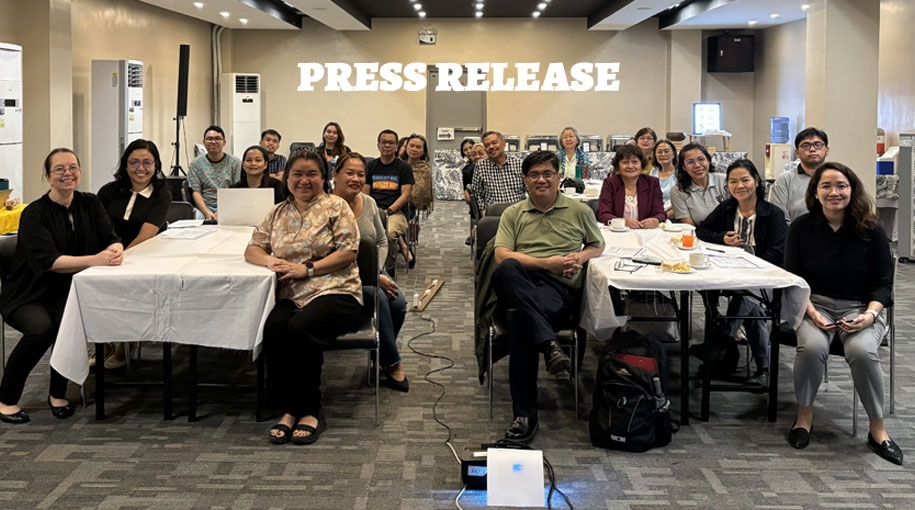Quezon City, Philippines, November 7, 2024 – The Commission on Human Rights (CHR) recently hosted a comprehensive workshop titled International Human Rights Mechanisms: Workshop on Treaty Reporting, with a focus on the International Covenant on Economic, Social, and Cultural Rights (ICESCR). Designed to equip civil society organizations (CSOs) with the tools and knowledge needed to engage effectively with United Nations (UN) human rights treaty bodies, the workshop was a vital step toward enhancing accountability and advancing economic, social, and cultural (ESC) rights in the Philippines.
The workshop opened with remarks by Gemma F. Parojinog, Director of the CHR Policy Linkages Office, who emphasized the importance of CSO involvement in treaty monitoring and reporting. She underscored CHR’s commitment to supporting civil society in presenting a holistic view of the nation’s human rights landscape, especially as it pertains to marginalized communities.
Understanding UN Human Rights Mechanisms and the ICESCR
In the first session, Signe Poulsen, Senior Human Rights Adviser from the UN Office of the High Commissioner for Human Rights (OHCHR), introduced participants to the UN human rights treaty body system. She highlighted the core aspects of ICESCR and provided insights into how CSOs can contribute to the reporting process. Poulsen detailed how the 18-member Committee on Economic, Social, and Cultural Rights (CESCR) reviews reports from state parties and independent submissions from CSOs, comparing perspectives and issuing recommendations to improve compliance with ICESCR standards.
Philippines to be Reviewed at the CESCR’s 77th Session
The upcoming 77th session of the CESCR, set for February 10-28, 2025 in Geneva, will include a periodic review of the Philippines’ ICESCR implementation. This review will assess progress since the last evaluation in 2016, which highlighted specific concerns across diverse rights areas, from labor conditions and the informal economy to Indigenous rights and housing. Other countries scheduled for review include Croatia, Kenya, Peru, Rwanda, and the United Kingdom.
CSO Engagement and Contribution to ICESCR Reporting
The workshop emphasized the critical role of CSOs in treaty reporting, particularly through the ICESCR’s five-year reporting cycle. CSOs are encouraged to submit independent reports that address issues impacting vulnerable populations, such as Indigenous Peoples, women, children, and persons with disabilities. CHR explained that these submissions offer alternative narratives and specialized knowledge on ESC rights issues, which can supplement the state’s own reports to provide a more nuanced picture.
Atty. Klarise E. Fortaleza, Officer-in-Charge of the CHR’s ESCR Center, presented insights on the list of issues outlined by the CESCR, noting that CSOs play a vital role in highlighting discrepancies between state reports and ground realities. “While we recognize the interconnectedness of human rights, we must focus on the state-reported issues to underscore gaps effectively,” Fortaleza stated, encouraging CSOs to collaborate and submit joint reports for greater impact.
Focus Areas for Effective CSO Reporting
CHR advised participants on creating reports that emphasize unique data, local case studies, and community involvement. The workshop covered essential guidelines for ICESCR submissions, including the January 13, 2025, deadline for reports, preferred report lengths, and focus on English-language submissions. Attendees were also given examples of impactful CSO reports from past treaty cycles, covering topics such as the rights of persons with disabilities, housing issues, labor rights, and environmental justice.
CSO Insights on Human Rights Concerns
Participants raised pressing issues that affect Filipino communities, including labor rights, access to education, challenges in the informal sector, and cross-cutting issues faced by marginalized groups. Concerns were also voiced regarding climate justice, rights of older persons, and ongoing human rights violations linked to the war on drugs. These insights will help shape CSO reports to the CESCR, aiming to provide a clearer perspective on the human rights situation in the Philippines.
Next Steps and Deadlines for CSO Contributions
CHR will develop an independent report for the 77th CESCR session and invites CSOs to submit their contributions to This email address is being protected from spambots. You need JavaScript enabled to view it. by November 13, 2024. The CHR encourages CSOs to collaborate, ensuring that their recommendations are action-oriented and intersectional, in alignment with the CESCR’s guidelines for effective reporting.


